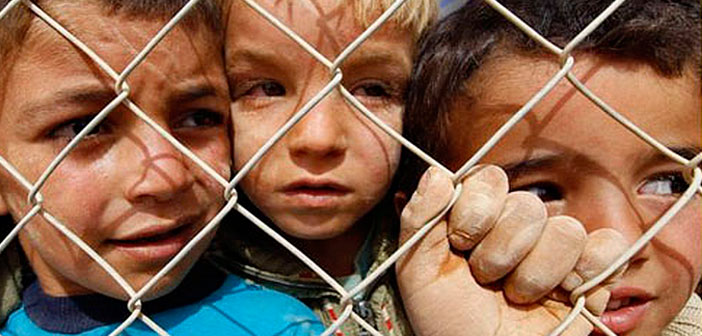Why should anyone, from small children to adult women and men, have to put up with these conditions?
Source: LRB
Three teenagers who arrived this week have been accused of looking like young men rather than children. The way the right-wing press has singled out these boys and published their faces in a hit parade is straight-up racist intimidation, playing on a stereotype of non-white foreigners being freakishly and threateningly overdeveloped.
People like the Conservative MP (not the Brexit secretary) David Davies – ‘These don’t look like “children” to me. I hope British hospitality is not being abused’; ‘Migrant “children” must be given dental X-rays to prove age’; ‘didn’t see any children in the camp’ – claim that they’re interested only in ensuring that genuine children get the protection they need.
Somehow I doubt it. Davies’s ‘concerns’ are part of a general narrowing down of the category of ‘deserving’ refugees, with the aim of taking in as few as possible. The terms are shifting constantly; when you answer one objection, another appears. OK, there’s a refugee crisis but the real refugees are the ones who stay in camps outside Europe. OK, there’s a crisis in Europe but the real refugees are the ones who stay in the first European country they set foot in. OK, there’s a problem in Calais but we only need to protect the lone children. OK, but not the teenagers. And so on.
Davies’s invoking of British ‘hospitality’ is also questionable. One might ask what kind of hospitality it is to leave thousands of Afghans, whose country Britain recently occupied for 13 years, and many of whom have relatives in the UK, living in the mud in Calais.
One might also question the wider theme of ‘Britain’s proud history of welcoming refugees’, as it is often called. The UK has indeed taken in certain selected groups of refugees at certain points in its history, and this has made a real difference to the lives of the people who came here. But it might be more accurate to say that Britain has a history of mainly trying to keep refugees out, while occasionally welcoming limited numbers.
People tend to forget that the British government, which kept its doors closed to most Jewish refugees from Europe in the 1930s, was pressured into the Kindertransport by Jewish and Quaker organisations – and even then, it only took the children and left their parents to die. The ‘proud history’, as often as not, is used to justify keeping refugees out.
Unaccompanied children are often in greatest need of protection and should be given priority, but helping them is not enough. Most of the migrants are adults. It’s the restrictions on their movement that create the situations in which children get trapped. And while a rhetorical focus on children may seem an easy way to skip the difficult political questions and appeal straight to people’s emotions, it may not be the best way to help refugees in the long run.
The migrants in Calais and elsewhere are not so much ‘innocents’ as people trying to retain control over their lives and making morally complex decisions about what risks to take, what rules to flout, what lies to tell – including, in a minority of cases, saying you’re under 18 when you’re not. If these details are kept out of the picture then it makes it harder to ask the questions that need to be asked.
Why should anyone, for example, from small children to adult women and men, have to put up with these conditions? What set of interests does it serve to regulate their movement and encourage people to fear them? And how likely is it that a state which treats refugees in this way will behave similarly to its own citizens?

